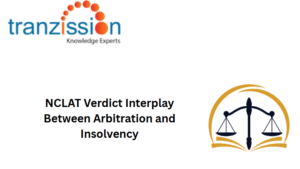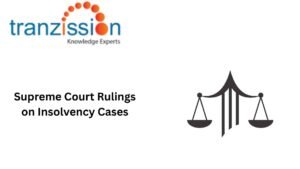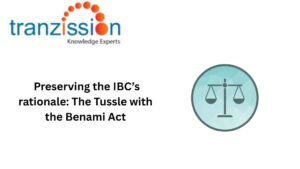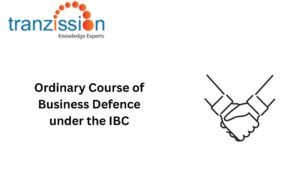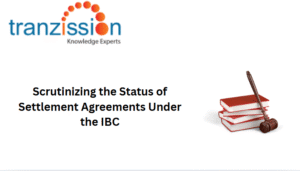
Guide to the Role of NGOs in Insolvency Cases

Table of Contents
All stakeholders, including NGOs in Insolvency Cases (non-governmental organizations), have an important role in insolvency matters. A non-profit or a charitable company is considered a section 8 company, incorporated under the Companies Act, 2013 that has defaulted the debt or payment of services availed by them to promote its objectives. When such a company faces financial duress their resolution process will proceed as per the proceeding prescribed under the Insolvency and Bankruptcy Code, 2016 (hereon forward known as “the Code”).
The Role of NGOs in Insolvency Cases
NGOs can help in the corporate insolvency resolution process (CIRP) by keeping costs and expenditures reasonable, avoiding taking any debt that cannot be repaid, and seeking funds from a variety of sources. The role of NGOs in insolvency cases can be understood in more detail below:
i) Advocacy and Awareness
Several individuals lack the awareness of what to do and how to do it in the event of financial duress. NGOs provide the necessary legal and financial information. Considering that many individuals that NGOs aid do not have access to the legal assistance that large companies have, NGOs advocate for the rights of individuals facing insolvency by providing legal assistance to insolvents so that a suitable repayment plan can be established to understand their rights under the Code.
NGOs may also offer legal representation to such insolvents before the Adjudicating Authority and ensure that there is adherence to the law, rules, and regulations. They also bring attention to certain gaps in the current insolvency law, such as the financial restrictions of individuals that make the resolution process costly for them.
Read more : What are the implications of insolvency for suppliers and customers?
ii) Providing Support Services
By providing support services to insolvents, NGOs can help lift the social, legal, and financial burden off them.NGOs working on social and economic rights offer a form of direct service to companies having financial distress. This is particularly helpful to individuals and companies that are on a smaller scale than large businesses. NGOs may provide business advisory support for filing procedures, financial advice, and other recommendations necessary for insolvents. Generally, advocates and other professionals provide their services and advice through NGOs under ‘pro bono work’.
iii) Education and Training
Many NGOs also include or have included it as a part of their activities, some sort of public awareness or education work. Realizing that the essence of their support depends on the general public, NGOs provide the public with educational resources on financial literacy and responsible borrowing. They educate insolvents through webinars, workshops, educational courses, and other online or offline tools. When insolvents know financial difficulties adopting the methods of preparing or defending themselves is easier. Training programs empower individuals to make informed decisions regarding their financial documents and future steps.
Collaboration with Government and Other Entities
Collaborating with government agencies and financial institutions extends the reach and effectiveness of NGOs that address insolvency issues. The Insolvency Law Academy, an independent think tank contributes to robust policy-making and enhancement of standards in the insolvency industry through various initiatives. NGOs partner with financial institutions to create comprehensive support systems for individuals in financial distress. With these collaborations, NGOs can take a holistic approach to aiding insolvents, financially, legally, and socially. Financial literacy programs, training, and job placements are made possible with the support of NGOs, government agencies, and financial institutions.
Case Studies and Success Stories
Many international and national institutions provide insolvents the legal support that they need to repay their debts and avoid insolvency or bankruptcy. Accion International is a global non-profit that aims to create a fair and inclusive economy by working with local partners to develop and scale responsible digital financial solutions for underserved people globally and help them make informed decisions. MyBnk is a UK charity that offers 5-25-year-olds financial educational programs that are conducted by experts in the field.
The Hague Institute for Innovation of Law is a civil society organisation committed to people-centered justice. They have promoted alternative dispute-resolution mechanisms to make the insolvency process more efficient and accessible for individuals. StepChange Debt Charity in the United Kingdom helps people take control of their finances and offers free advice to individuals. The National Foundation for Credit Counselling is one of the largest non-profit organisaiton in the United States that counsels people who have taken too much debt, aiming to keep them from bankruptcy.
Challenges Faced by NGOs
Despite NGO’s many benefits in the insolvency field, there are many hindrances to their implementation. Amongst the many challenges are funding limitations and a lack of volunteers. Collaborations with governmental agencies and financial institutions often take time to establish, time which is not available to many insolvents. NGOs also face regulatory hurdles, which makes it difficult for NGOs to operate efficiently. Trying to establish fairness and transparency with their work, legalizations, and communication with insolvents delays the resolution process. NGOs also face significant challenges when it comes to engaging in financial markets due to their limited financial and technical capacity.
Future Directions and Opportunities
NGOs can bridge the gaps in the insolvency systems for individuals facing insolvency or bankruptcy. They can also help facilitate inclusion by partnering with the private sector to assist individuals. To ensure that their actions are more effective, NGOs should aim to be more involved in bank-financed operations, issues of public access to bank-generated information, and development decisions. NGOs can also assist individuals in improving their operations and procedures to reduce financial risk. By helping insolvents adhere to the relevant laws. Rules, and regulations, while complying with the necessary reporting requirements, NGOs can also address the gaps in the present insolvency law.
Conclusion
Non-governmental organizations make significant judgments about the reliability of the person requesting financing rather than the project that they are going to finance. By providing financial literacy programs and training classes to individuals, they can educate insolvents on what remedies are available to them and what decisions to take in such events. NGOs also promote advocacy and awareness to insolvents to inform them about their rights and duties under the Code, rules, and regulations. Therefore, they have an important role in offering support services to individuals who are facing financial distress and cannot access the professional assistance that large companies have.

